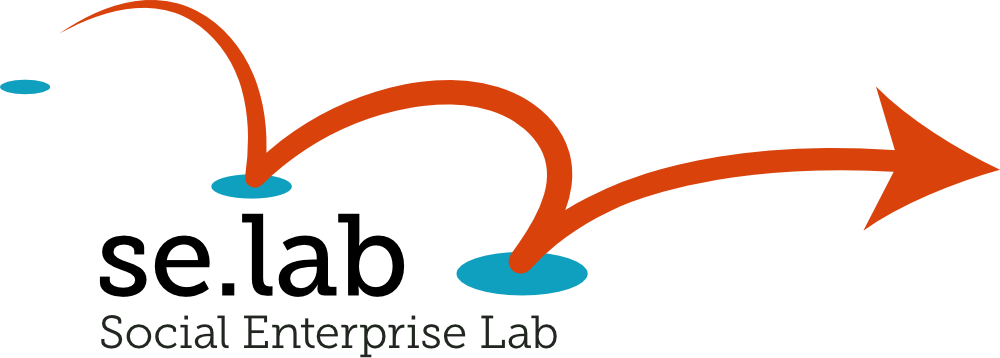Renske van der Wal wilde haar studie in praktijk brengen en zit momenteel in Nepal. Zij blogt onder andere voor se.lab over sociaal ondernemerschap in Nepal.
“Social entrepreneurship in Nepal”
…also known as a ten week transplant of a Dutch Bachelor student of International Affairs and Development into the full-blown reality of her studies. My name is Renske van der Wal, and for an internship abroad I am currently involved in social entrepreneurship in waste management in Nepal. In this blog, I will be updating you on my experiences, learnings and, hopefully, achievements. In this first episode, I will necessarily provide some information on what I am doing here, the why and the how.
For instance, why work in Nepal? Most importantly, because waste management in Nepal is buzzing with social entrepreneurial activities and new ideas. This country is the poorest country in Asia, with an unstable government and waste management practices far insufficient to protect the people and the environment from increasing pollution. The introduction of cheap plastics has made the problem infinitely more complex for anyone who is accepting the challenge, which is mostly local and international ngo’s. As the government adopted the policy of public private partnerships in waste management, social entrepreneurship is an important part of this collaboration. Economic incentives and income generation prove every day to be the most powerful assurance of local participation. In this context, there will be plenty to learn about social entrepreneurship.
However, as this concept is versatile in its definitions, what is the basis for my activities? Personally, I recognise the heart of social entrepreneurship (SE): having a desire to help in a situation where help is needed, and accordingly select economic practices and principles which have shown their merit. This is a rather intuitive representation of SE, and the theory and the practice of SE are infinitely more complex. My goals for this internship are, therefore, to increase my understanding of the concept of social entrepreneurship, of the effort delivered by the entrepreneur and the context of doing this in a developing country.
Right now, I have been in Nepal for four weeks, three of those in official employment of Pragya Seeds Nepal, PGSN for short. This organisation is trying to improve waste management practices in Nepal. Working for PGSN has already taught me much, but instead of relating these weeks chronologically, I would like to present three case studies in which I have been involved so far. For my own first strides in SE, these experiences have shaped my frame of reference
Firstly, I accompanied a colleague to a remote mountain village, Madan. In the local school we were given the opportunity to educate a few classes on waste management. Ground level just became real: the area was scattered with waste, the only collection of waste was directed at the nearest burning site and though the word ‘dustbin’ was obviously added to the kids’ English vocabulary, they had probably never seen one. My friend took the lead in explaining in the simplest English that ‘whatever comes from nature can go back to nature’, and that the rest, especially plastic, should never be burned in the cooking fire in the house. These points were the most important; separating organics and non-organics to avoid pollution and explaining the health dangers of burning plastics. As for everything else, it is as simple as this – if there is nowhere to deposit the waste, why use a waste bin for the process? Burning is standard practice, and yes, this is bad for the environment and the people. Welcome to Nepal.
Secondly, I took a view from the other end of the scope. In Ilam, a tea-district in the east, PGSN conducted a training on Zero Waste for municipalities (local urban governments). With forty representatives in the room, I learned about Zero Waste as a framework for responsible waste management on a communal, regional and national scale. Implementation tools were also presented; like the tactics of persuading a community into segregating and recycling. For example, a government or donor issuing composting pots to every household may find out about the various purposes these pots may also serve apart from the intended one, but profitable composting activities carried out by the motivated ten percent can create a trend in the community. To me, this was like peeking at the backside of embroidery. Having pinpointed these and more principles in a brand new mind map, I started my work for PGSN. I will be assisting in more of these trainings. Maybe in a following blog I can relate something about the learning process of the municipalities, as Ilam agreed to implement Zero Waste with PGSN as partner.
My third case study is actually the beginning of my own entrepreneurial activity. PGSN is starting a pilot project in Kathmandu, with a biogas and composting plant processing the waste from the city district of Boudhanath. A Zero Waste Centre will be the starting point for raising awareness in the Boudhanath community, as well as for social entrepreneurial activities such as recycling plastic material into handicrafts. The start of this centre, especially the entrepreneurial activities to be developed there, will be my main occupation for the following months. In a meeting yesterday, the Tinchuli Women Group in Boudhanath agreed to become our partner in this Zero Waste Centre. Women organisations are important partners in Nepal, and I am very happy to start working with them. With this destination of my internship confirmed, and with plans for the next weeks ready, I will stop writing at last. I hope you enjoyed reading about Nepal, and I welcome you to come for a visit. That is, once we have cleaned it a little…


